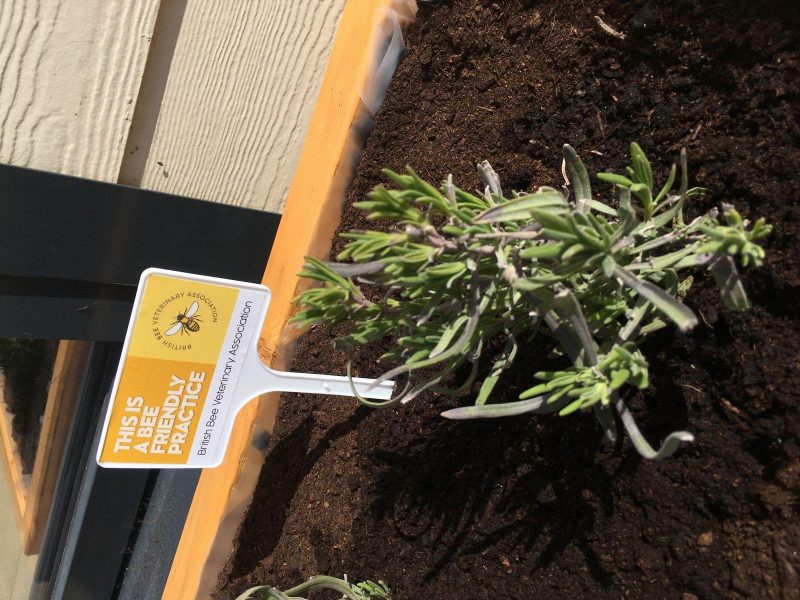10 achievable tasks during a free consult slot to help begin your sustainability journey
Catherine Burke
In 2019, a BVA Voice of the Veterinary Profession Survey (1) found that 89% of members think vets should play a more active role in sustainability. Two years later and, with all of us trying to digest what has (or has not) been decided at COP26 in Glasgow this Autumn, I would hazard a guess that this percentage may now be even higher.
However, perhaps the two biggest factors that stop us from beginning our journey are what to do and when to do it – we are, after all, time constrained individuals.
There are, however, a few easy tasks that offer a handy way to get started. Some are instant actions that you can repeat each time you have a (precious) consult slot going spare, others are quick tasks that might initiate change in the future. All offer the chance to make your first foray on your sustainability journey in practice.
1. Hear it from the horse’s mouth: E-mail your waste disposal company (e.g. local council) to arrange a visit from a member of their team. They may be able to discuss with the practice exactly what you can and can’t put into each bin, including specific medical items you can’t easily find out about yourself.
2. Join the Terracycle scheme: Have a gander on the Terracycle website and choose a zero waste box that would be suitable for your practice e.g. the PPE recycling box which has been particularly useful during the pandemic for disposable masks and gloves. If you are trying to keep costs down, some boxes are sponsored by the companies that produce the waste which means there is no cost to the practice. For example, Lily’s Kitchen still has some available locations for their boxes. Or, if your practice has a particular hankering for crisps at lunch time, you can find your nearest drop off point for recycling those pesky hard-to-recycle bags.
3. Stretch your legs: Take a walk around the waiting room and take a note of what you are selling to your clients. Are you selling toys that could be purchased from a more ethical company? Virgin plastics (i.e. newly created plastic that contribute more than recycled plastic to pollution and overuse of landfills) are something you could make a policy not to buy in. For example, Beco Pets use recycled plastic bottles to make some of their toys.
4. Bee friendly: Contact the British Bee Veterinary Association to order a free Bee Friendly Practice Pack, which includes wildflower seeds to plant around your practice.
"Have a gander on the Terracycle website and choose a zero waste box that would be suitable for your practice e.g. the PPE recycling box which has been particularly useful during the pandemic for disposable masks and gloves."
5. LED it shine: If you don’t know the answer, email your practice manager to ask if your lighting is all LED. If it’s not, suggest that you transition to LED bulbs each time one blows (an efficiency that saves money as well as energy).
6. Put your money where your mouth is: Log in to your pension fund (if you can remember your password) and check if you can change to an ethical portfolio. If it’s not an option, e-mail the company to ask why they do not provide ethical pension options. Of course, where you invest (or divest) your money is a personal decision that should be supported by independent financial advice, and if you wish to learn more about ethical pensions to begin with, use your spare consult to read this helpful explainer from Ethical Consumer (scroll down below the paywall).

7. Order a caddy: If your practice doesn’t already have one and your local council collect food waste, go online and find a countertop caddy for your practice kitchen. Send a link to your practice manager or get permission to use the company credit card. If your local council doesn't collect food waste, you could use the opportunity to email them to ask why.
8. Communicate: One of the biggest barriers to recycling is convenience. Talk to others and try to understand what could make their lives easier. Have a chat with the nursing team or reception team and ask about the tasks specific to them. What would make it easier for them to recycle (e.g. clear labelling of bins, colour coding etc.)? Jot down the answers so you can action it when you have your next free consult slot. You may also wish to familiarise yourself with the BVA’s waste segregation guides or print out the Davies Veterinary Specialists waste segregation posters to get you started.
"Have a chat with the nursing team or reception team and ask about the tasks specific to them. What would make it easier for them to recycle?"
9. Visit the printer: Have a look at where the printer paper is stored and check to see if it is FSC certified – this ensures it is either recycled or sourced from managed forests. In most cases, FSC paper is not significantly more expensive than non-FSC sources, so asking for change will not hurt your practice’s bottom line.
10. Empty the (virtual) trash: Digital items all require energy, somewhere in the world, to be stored. Unsubscribe from unwanted emails, empty the trash on your computer and permanently delete the emails in your ‘deleted items’ folder.